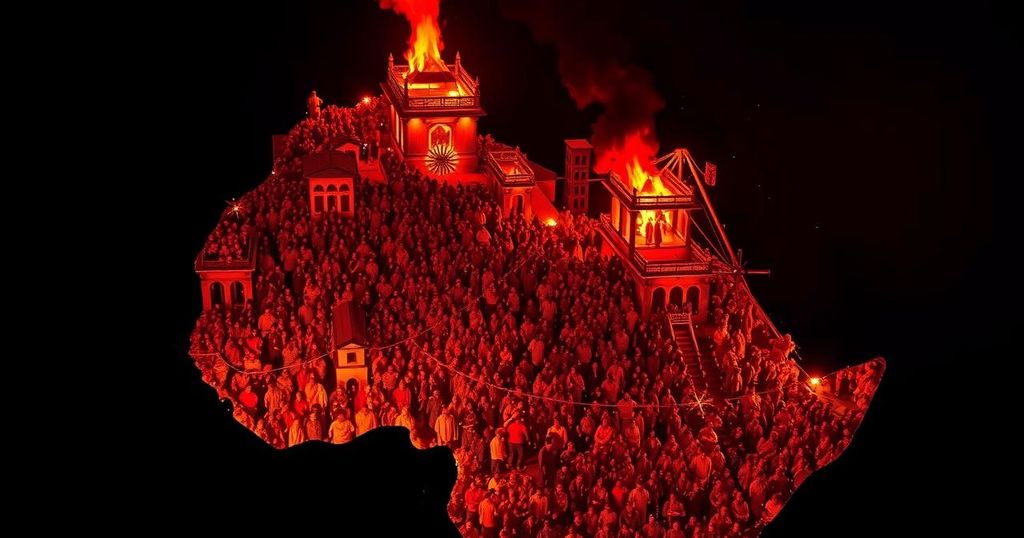Post-Election Violence in Mozambique: Implications for Southern Africa

The article highlights the violence in Mozambique following disputed elections on October 9, 2024, where the ruling Frelimo party faced protests from opposition. At least 30 fatalities have been reported, raising concerns for regional stability and democratic governance across Southern Africa. The unrest has economic implications, particularly regarding trade relations with neighboring countries, and underscores the historical challenges Mozambique faces in maintaining political stability.
On November 7, 2024, Mozambique experienced widespread protests and violence following the disputed elections held on October 9. The ruling Frelimo party, which has dominated politics for 49 years, faced significant opposition from independent candidate Venancio Mondlane, who garnered 20% of the vote and has called for nationwide demonstrations against the election results. Reports indicate that at least 30 individuals have lost their lives amid this unrest. These events are expected to be a focus of discussions at the upcoming Southern African Development Community summit, as the implications extend beyond Mozambique’s borders. The recent electoral turmoil in Mozambique raises critical concerns for Southern Africa, notably regarding the stability of democracies and the integrity of electoral processes in the region. Other countries, such as South Africa and Botswana, have successfully navigated recent elections with a smooth transition of power, contrasting sharply with Mozambique’s situation. Furthermore, the European Union’s electoral observers reported irregularities in the recent polls, including possible result alterations, mirroring previous allegations against Frelimo. Countries like Zimbabwe have similarly struggled with disputed elections, leading to greater regional apprehension about democratic governance. Mozambique’s geographical significance as a hub for regional trade further exacerbates these concerns. Its extensive borders with South Africa, Tanzania, and others facilitate crucial trade routes. Following unrest, South Africa temporarily closed the Lebombo border, which disrupted trade and incurred daily economic losses estimated at R10 million. Given Mozambique’s mineral wealth, including vital exports like chrome ore, stability within its borders is paramount for regional economic health. Additionally, Mozambique’s history of civil conflict and ongoing security challenges, particularly concerning armed insurgent groups in Cabo Delgado, have compounded the urgency of achieving political stability. With approximately 1.3 million individuals displaced, a worsening situation could prompt further regional migration crises. The need for sustained dialogue and resolution of electoral grievances stands as crucial for not only Mozambique but the stability of the broader Southern African region.
The article discusses the political unrest in Mozambique following the controversial October 9, 2024 elections, which reaffirmed the long-standing power of the ruling Frelimo party. It highlights the ensuing protests, which have resulted in fatalities and heightened tensions within the country. Additionally, it contextualizes these events within the broader framework of democratic governance challenges across Southern Africa, particularly the impact of election disputes in neighboring states. The economic repercussions of Mozambique’s instability on regional trade and the historical backdrop of civil conflict are also addressed, painting a comprehensive picture of the situation’s significance.
In conclusion, the post-election violence in Mozambique poses serious concerns for the stability of Southern Africa. This unrest not only undermines democratic integrity but also poses economic challenges for the region due to disrupted trade. With many neighboring countries facing their own issues regarding governance and migration, it is imperative for Mozambique to attain political stability to prevent further regional turmoil and to foster a climate of peace and cooperation among Southern African nations.
Original Source: apnews.com








